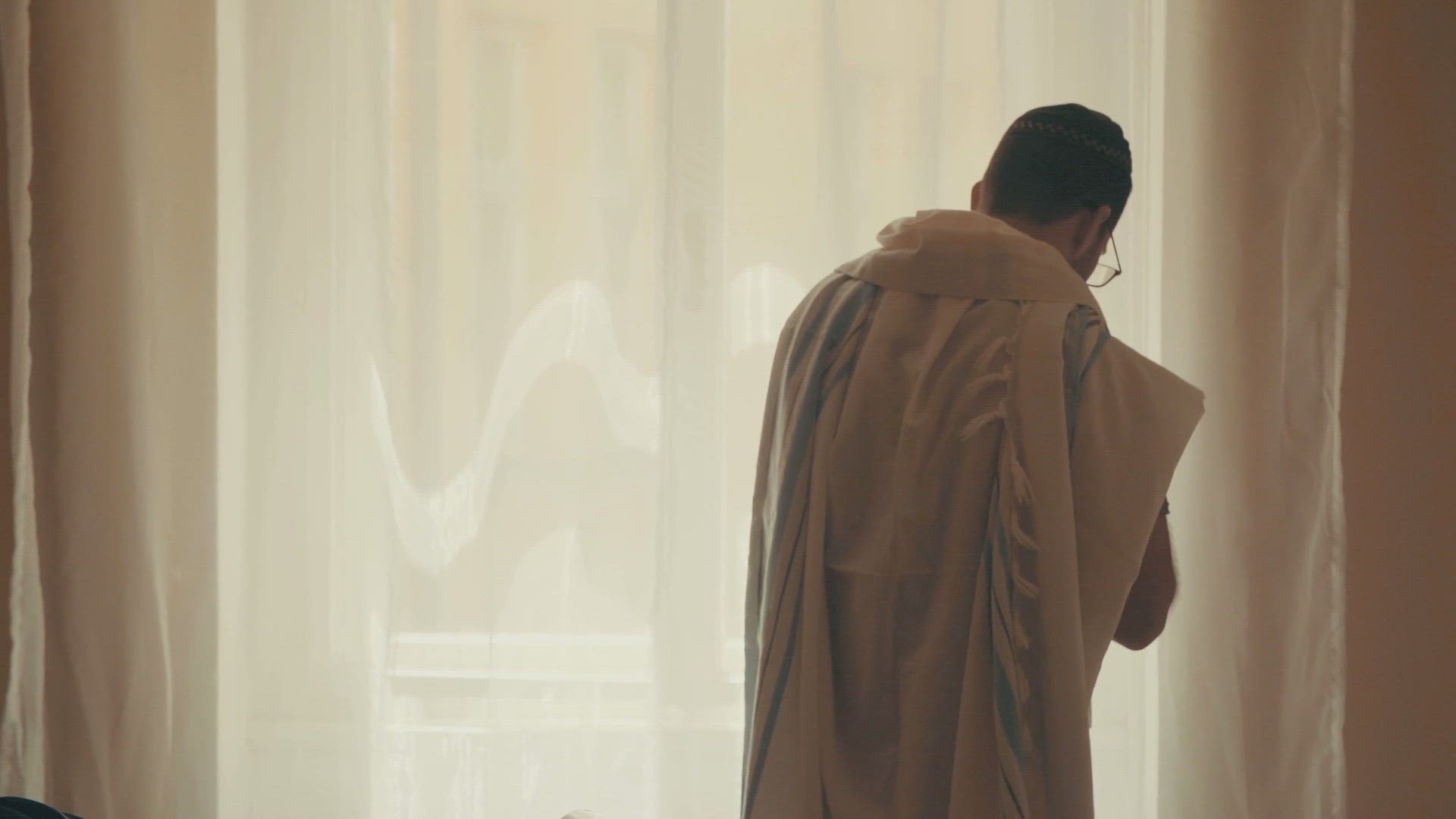TYLER, Texas — **EDITOR'S NOTE -- the video attached was produced in Sept. 2021.
Purim, also known as the Feast of Lots, is a joyous holiday in Judaism that commemorates the survival of the Jews in the fifth century.
Although the holiday is a result of a threat to Jewish existence, it serves as a story of togetherness and perseverance within communities around the world, including in East Texas. Over the years, this celebration has morphed into a more positive and joyous holiday with food and loud noise makers.
This year, the themes of survival and perseverance have a somber connection to those in Ukraine. Monica Miller, a congregant of Congregation Beth El in Tyler, emphasized the connection the story offers to the current world.
"Everyone in the Jewish world right now is drawing the parallel," said Miller. "The reason the Ukrainians are facing genocide is the same as the Jews in the Book of Esther: we did not bow down to an oppressive leader."
The story surrounding Purim, which is Hebrew for "Lots" (as in lottery ticket), comes from the biblical Book of Esther, also referred to as the Megillah. This is one of the two only books that does not explicitly mention God. Instead, the story has the sentiment of God laced into the actions of the Jews in Persia.
The story focuses on the Chief Minister to King Ahaserus of Persia, Haman, who accuses a Jewish man, Mordecai, of disobeying him. This accusation of Mordecai leads Haman to ask King Ahaserus to allow him to massacre the entire Jewish population, which King Ahaserus agrees to.
While this plan was made, Esther, King Ahaserus's wife, discovered Haman's plot and fasted for three days before pleading before the king to stop the massacre, as Esther was Jewish. When he realized the full extent of Haman's plan, King Ahaserus decreed a royal edict permitting Esther, Mordecai and the Jews of Persia to not only execute Haman, but to turn on their enemies and those who threatened their livelihood.
This retaliation by Esther and the Jews of Persia was on the same day that Haman set for the massacre, which was the 13th day of Adar in the Jewish calendar. Once the Jews were victorious against Haman, they declared the following day as Purim, with Adar 13 being Ta'anit Esther, or the "Fast of Esther", to commemorate the fast Esther and the Jews participated in three days before Esther confronted King Ahaserus.
Miller said when observing Purim, the congregation is commanded to metanot l'evnoyim, which translates to "give to those in need", wherein Jews collect food and money to send to those who need it - which is what the congregation did for those in Ukraine.
"We need to support our own community, and now Ukrainians are leaving with nothing but the skin off their teeth. They need supplies, money and any kind of support we can offer," Miller said.
The common emblem associated with survival during Purim are a three-pointed cookie called a hamantaschen, which translates from Hebrew to "Haman's ears".
These are pastry cookies filled with either sesame, poppy seeds, raspberry or apricot, and are eaten as a way to not only make fun of Haman and his defeat, but to remember the triumph the Jews had over evil. The love for these have no borders, and this year marks a deeper meaning to the triangle pocket cookies with the ongoing invasion of Ukraine.
Started in Boston, the Hamantaschen for Ukraine movement has participating bakers across the world donating some or all of their proceeds from hamantaschen sales to the Polish Humanitarian Action group, who send aid to those in Ukraine. A Dallas bakery, Sour on Dallas, was the only Texas-based bakery to participate in helping those across the Atlantic.
Leah Dubrawsky, co-owner of Sour on Dallas, wasn't fully focused on marketing to the campaign, but wanted to help those in Ukraine in some fashion.
"I saw my friend post about it on social media and I thought I would sell some hamantaschen," said Dubrawsky. "Not a lot were sold, but there was a little bit of money that is being sent to the Ukraine from them."
In addition to their participation in the fundraiser, Sour on Dallas sells kosher sourdough-based baked goods that align with Jewish holidays. For Purim, they curated a basket with a sourdough challah bread; hamantaschen; a sourdough cookie; and a can of Moscato d'asti Bartenura. Ten percent of the proceeds from these baskets will be donated to the same fund for those in Ukraine.

